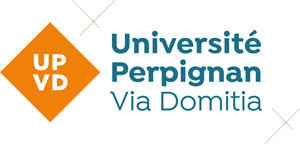
CRIOBE / Madame Camille VIZON soutiendra sa thèse (en anglais) le 18 octobre 2024 à 9h30 - UPVD, campus Moulin-à-vent, Amphi 5, un doctorat de l'EPHE-PSL.
Chemical and microbial mediators as key structuring elements for coral recruitment
Titre de la thèse :
Chemical and microbial mediators as key structuring elements for coral recruitmentRésumé
Over the past few decades, coral reef ecosystems have undergone a rapid degradation, with increasing disturbances causing a decline in coral cover worldwide. Coral recruitment is a crucial process for the renewal of coral populations. Crustose coralline algae (CCA) serve as settlement substrate for many marine invertebrate larvae, including coral larvae. However, no specific chemical and microbial cues have been clearly identified. Inversely, macroalgae and benthic cyanobacteria can deter coral larval settlement via water-borne compounds, but few of these compounds have been investigated and their ecological relevance remains unclear. This thesis aimed to identify the chemical and microbial mediators influencing coral recruitment. It demonstrated that macroalgal and cyanobacterial exudates induce a stress behavior in coral larvae. These exudates were enriched in secondary metabolites and stimulated the growth of opportunistic and potentially pathogenic bacteria. Cyanobacterial metabolites (i.e., laxaphycins) reduced the survival and inhibited the settlement of coral larvae at concentrations found near cyanobacterial mats in situ. Conversely, CCA exudates induced a pre-settlement larval behavior. They were enriched in metabolites related to primary metabolism (i.e., glycerophospholipids) and stimulated the growth of beneficial bacteria. Using chemical extracts, this thesis identified several metabolites (i.e., glycerolipids, polysaccharides) produced by the CCA that may positively influence coral larval settlement. Finally, as larvae can choose their settlement habitat, this research addressed whether the nearby environment influences the early development of the coral microbiome. The presence of different algae did not impact the coral recruit microbiome, and the algal species did not act as a bacterial reservoir. By combining cutting-edge techniques in metabolomics, metabarcoding and chemical ecology, this thesis contributes to a better understanding of the structuring and functioning of coral reefs, the interaction mechanisms between organisms, and the role of bacteria and biomolecules in the marine environment.
Jury composé de:
Jury composé de:
- Catherine Leblanc, Directeur de Recherche, Sorbonne Université, Rappportrice
- Peter Schupp, Professor, Carl von Ossietzky Universität Oldenburg, Rapporteur
- Mehdi Adjeroud, Directeur de Recherche, IRD Examinateur
- Guillermo Diaz-Pulido, Professor, Griffith University, Examinateur
- Claudia Pogoreutz, CPJ, Université de Perpignan, Examinatrice
- Maggy Nugues, Maître de conférences - HDR, EPHE, Directrice de thèse
- Isabelle Bonnard, Maître de Conférence, Université de Perpignan Via Domitia, Invitée
- Pierre Galand, Directeur de Recherche, Sorbonne Université, Invité
En ligne (Zoom) :
ID réunion : 947 7062 3802 | Code secret : 525811
https://upvd.zoom.us/j/94770623802?pwd=cjEIfoaLr5Sns5X9iK1q77eZYVMeXs.1
Mise à jour le 5 octobre 2024









